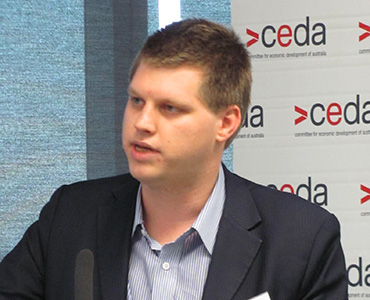The eradication of Polio in India has inspired hope that extreme poverty can be eradicated by 2030, Global Poverty Project, Global Policy and Advocacy Manager, Michael Sheldrick has told a CEDA leadership forum on Transformative ideas in the 21st Century in Perth.

In 2009, India had more polio cases that any other country and in January 2011 they recorded their last case, Mr Sheldrick said.
This year, after three years without a single case recorded, India was officially removed from the list of polio endemic countries and the World Health Organisation's south-east Asia region was declared polio-free, he said.
Mr Sheldrick said the eradication of polio in India is a powerful example that showcases what can be done when people and countries mobilise for a cause, and gives hope for ending extreme poverty.
It was also encouraging that the number of people living in extreme poverty has halved over the last 25 years, he said.
Mr Sheldrick said he is inspired by the World Bank Group President, Dr Jim Yong Kim who believes it is possible to eradicate extreme poverty, with World Bank data mapping out how it is possible.
"In fact, if left to economic growth alone, the number of people living in extreme poverty will at best still be around $600 million people; it's currently around one billion," he said.
But Mr Sheldrick warned that despite the mantra around economic growth, it is not the solitary solution to lifting people out of poverty.
In Zambia, despite experiencing double digit economic growth over the last decade, the number of people living in extreme poverty actually rose by 10 per cent, he said.
Just like polio, to end extreme poverty we need to rally behind the goal and have highly effective targeted interventions, he said.
"Ultimately, a world free of extreme poverty is in all of our interests," he said.
Mr Sheldrick said the Global Poverty Project will be campaigning G20 countries at the upcoming G20 Summit in Brisbane in November to highlight the issues of sanitation and access to toilets.
CEDA will be releasing a G20 research report in August 2014.